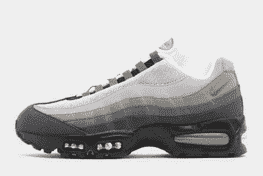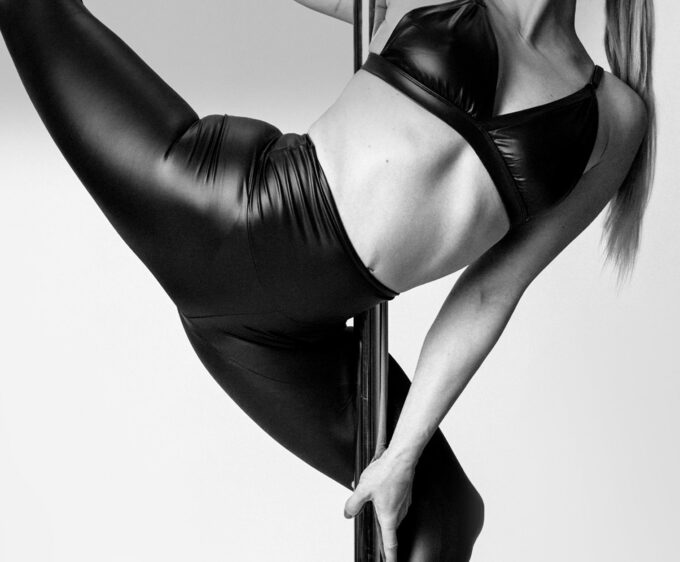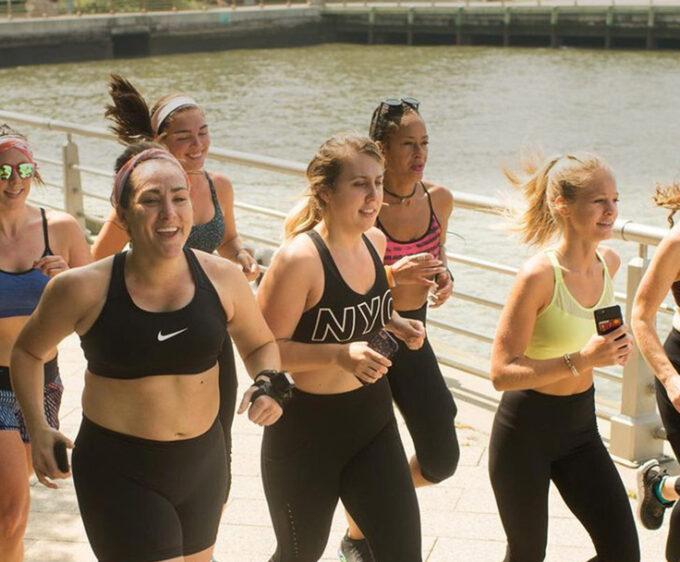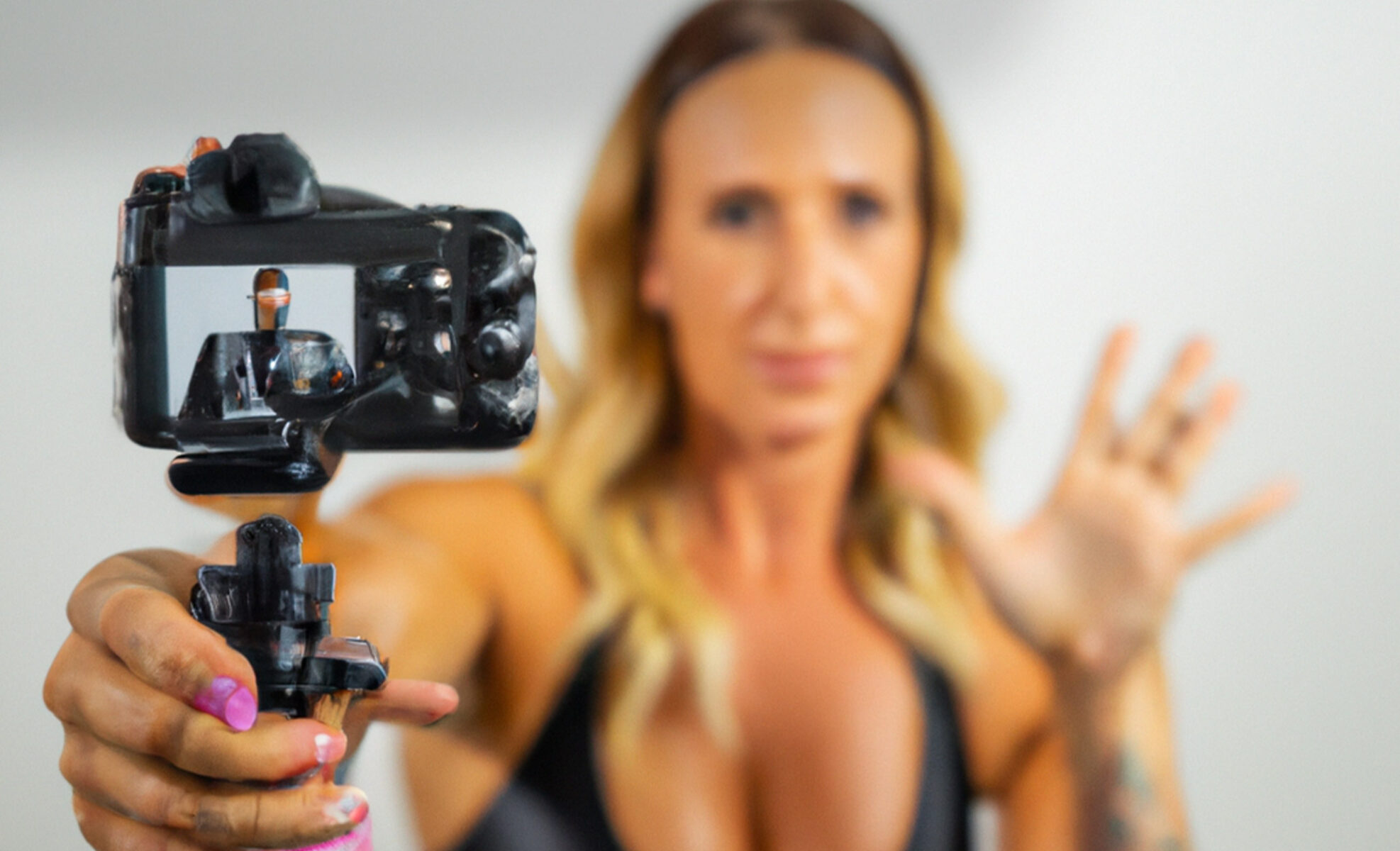
#Fitspo – Friend Or Foe?
Are online fitness influencers masters of deception or authentic role models? We deep dive into the rise of #deinfluence with imagery generated by an AI bot's response to #fitnessgoals
By Emily Spiller
I found myself doom-scrolling through #fitnessgoals
The explosion of online fitness influencers vying for followers through quick-fix workout regimens and alluring photos is hard to ignore. Accounts attracting engagement with progress snaps, product promotion or membership packages have led to #fitness becoming one of the top hashtags searched on Instagram, ever. We asked an AI bot (artificial intelligence software) to find us a few influencers in the fitness world and it came up with a selection of images : we confess to being pretty surprised and even shocked by the results.
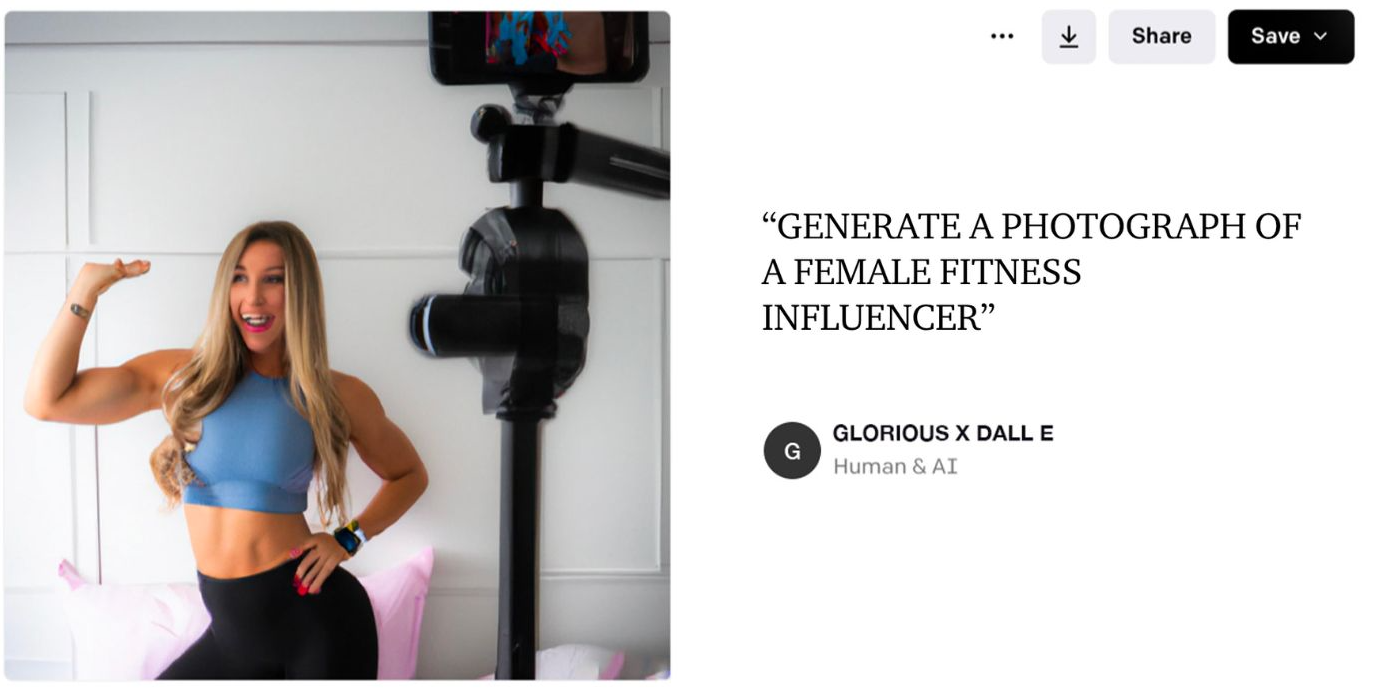
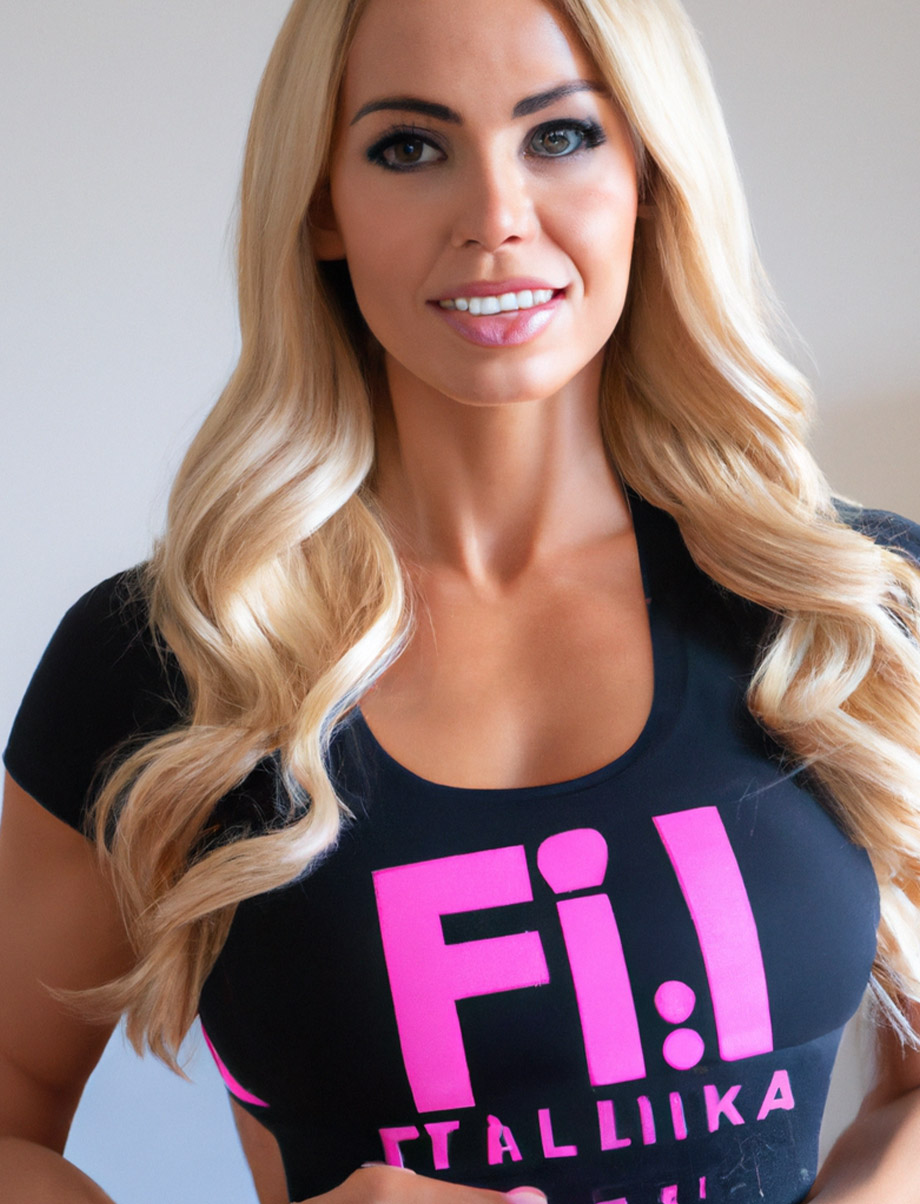
But if you’re looking for inspiration, doing a burpee is probably easier than differentiating between genuine experts and untrained peddlers of dangerous advice. Some influencers advocate strict diets and high-intensity workouts without providing any industry-recognised qualifications. This can have severe consequences for their followers’ physical and mental health, as well as put them at risk of injury. So where do you start? Do you just look for those with the most followers? Searching hashtags like #getshredded will reveal many young women promising that you can be just like them for a small, upfront fee.
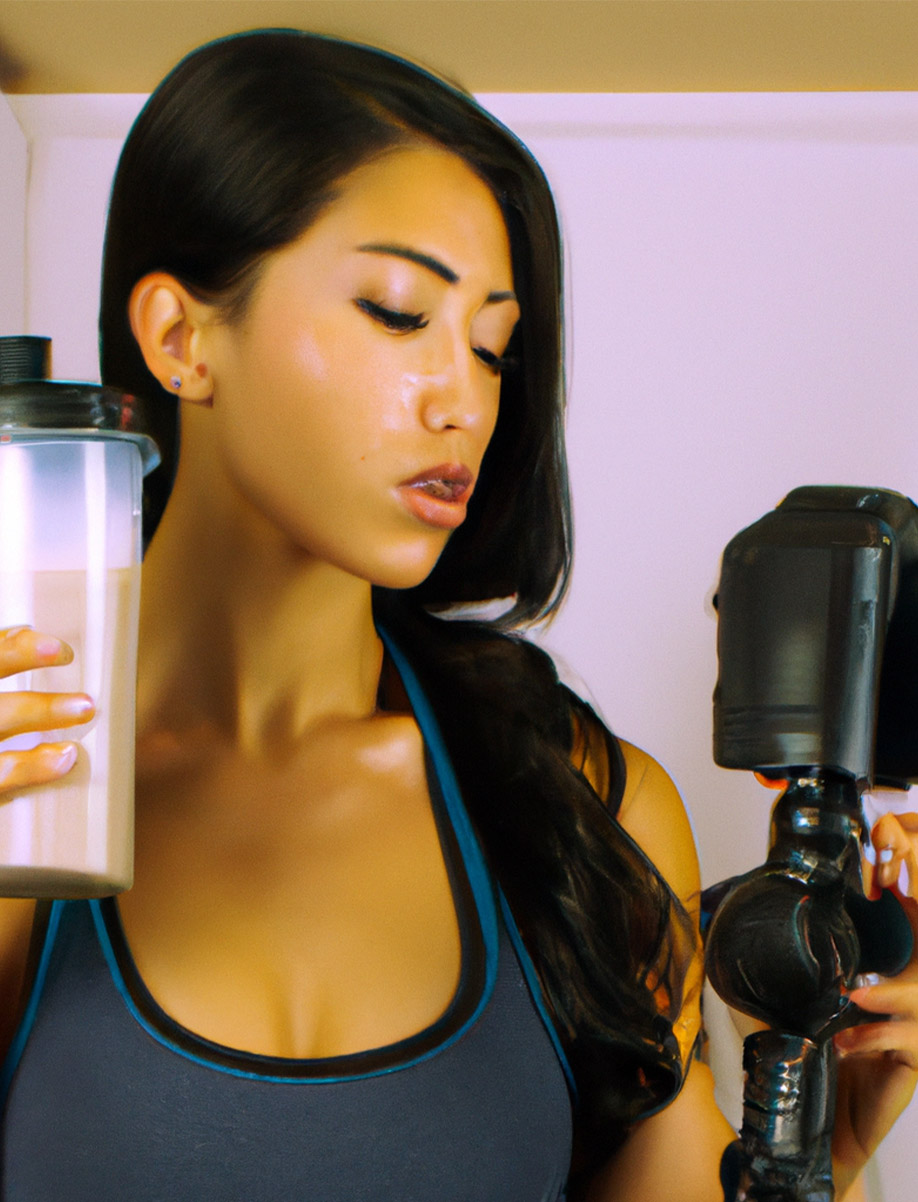
Two years ago I found myself in this situation. I’d signed up for a charity run. It was peak lockdown, gyms were closed and I had limited funds. For context, I wasn’t unfit. I’ve always done my fair share of YouTube workouts and my average daily step count was +10k, thanks to our daily exercise release. I had a fairly balanced diet (excluding my penchant for a “beige platter” and Negronis) but wanted to be healthier, given the pandemic, and not embarrass myself on race day.
One rainy evening, I found myself doom-scrolling through YouTube searching for someone to deliver ‘my best me’, whoever that is. Enter, Chloe Ting. With her petite figure and rock-hard abs, I gazed adoringly at her daily photos wondering if I too could sashay out of Lockdown One in a crop top. Ting’s video boldly declared that abs were achievable in just two weeks. I thought, ‘If 12 million people subscribe to her channel, maybe it’s worth a go?’
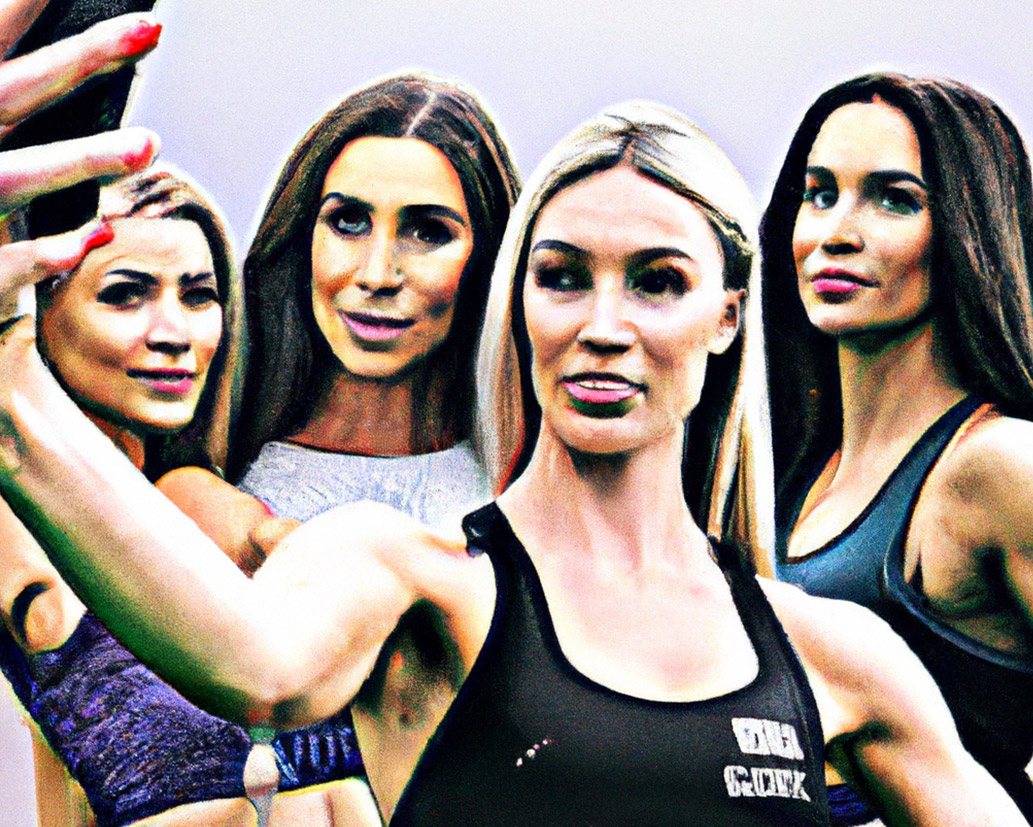
I tried for a week, religiously doing side plank crunches and curtsy lunges whilst longing for rest days. In the second week, I scrolled down to the comments section and noticed the disclaimer: Ting states that she titles the videos for content discoverability and that video titles may be subjective. For example, Ting adds that targeting fat reduction is not scientifically proven but a video title might suggest otherwise. Well, that’s a shame! I’m not claiming that I thought I’d have a six-pack straight away, but is this false advertising, even if you don’t pay for the service? At least the TV adverts for hair care promising I’ll look like an Afghan Hound include the tiny print showing that only 51% of 75 people were happy with the results, no scrolls necessary. I kept wondering if all fitness stars do this.
Not All Trainers Are Created Equal
A week later and I’d lost myself down an internet rabbit hole reading about fake weights and wellness influencers, particularly those who pushed package programmes. The sad and dangerous reality of how misinformation can easily spread online seemed rife. Take Belle Gibson, a notorious Australian influencer who admitted to fabricating her claims that her diet could “cure” her cancer. While an extreme example, it illuminated the need to be wary of wellness influencers. Especially during the pandemic, many of us were more vulnerable to being taken in by their magical-sounding health advice.

Brittany Dawn also caught my attention. She rose to fame offering online nutritional and fitness packages ranging from $92 for a one-time macro consultation to $300 for three months of personalised macros, training and coaching. Macro counting helps you understand where calories are coming from and how they affect your body, so a tailored plan from an expert makes sense as everyone’s body is different. She has been no stranger to controversy. In 2014, criticism rose when she used the two hashtags #eatingdisorderrecovery and #skipdinnerwakeupthinner on the same post. This doesn’t exactly scream ‘role model behaviour’ to me. In 2019, Dawn appeared on Good Morning America addressing numerous customers who branded her programmes a scam. At the time of her interview, there were around 4,000 members of a Facebook group titled ‘Brittany Dawn Fitness Complaints’. Some claimed to have received partial refunds, and others got all their money back but only if they signed an NDA.
As part of her ‘apology’ Dawn claimed she jumped into an industry that didn’t have an instruction manual, adding that she was just learning as she went. We’ve all done that in jobs, I certainly have when catering at a bar aged 18 with zero training. But when you’re potentially impacting the health and wellbeing of others? And taking their money? That doesn’t sit right with me, and the Texas Attorney General’s office agreed. They filed a lawsuit against Brittany Dawn Fitness LLC in February 2022, seeking $250,000 and $1m in penalties and court fees. Dawn lost several sponsors on Instagram and YouTube after the lawsuit was filed.
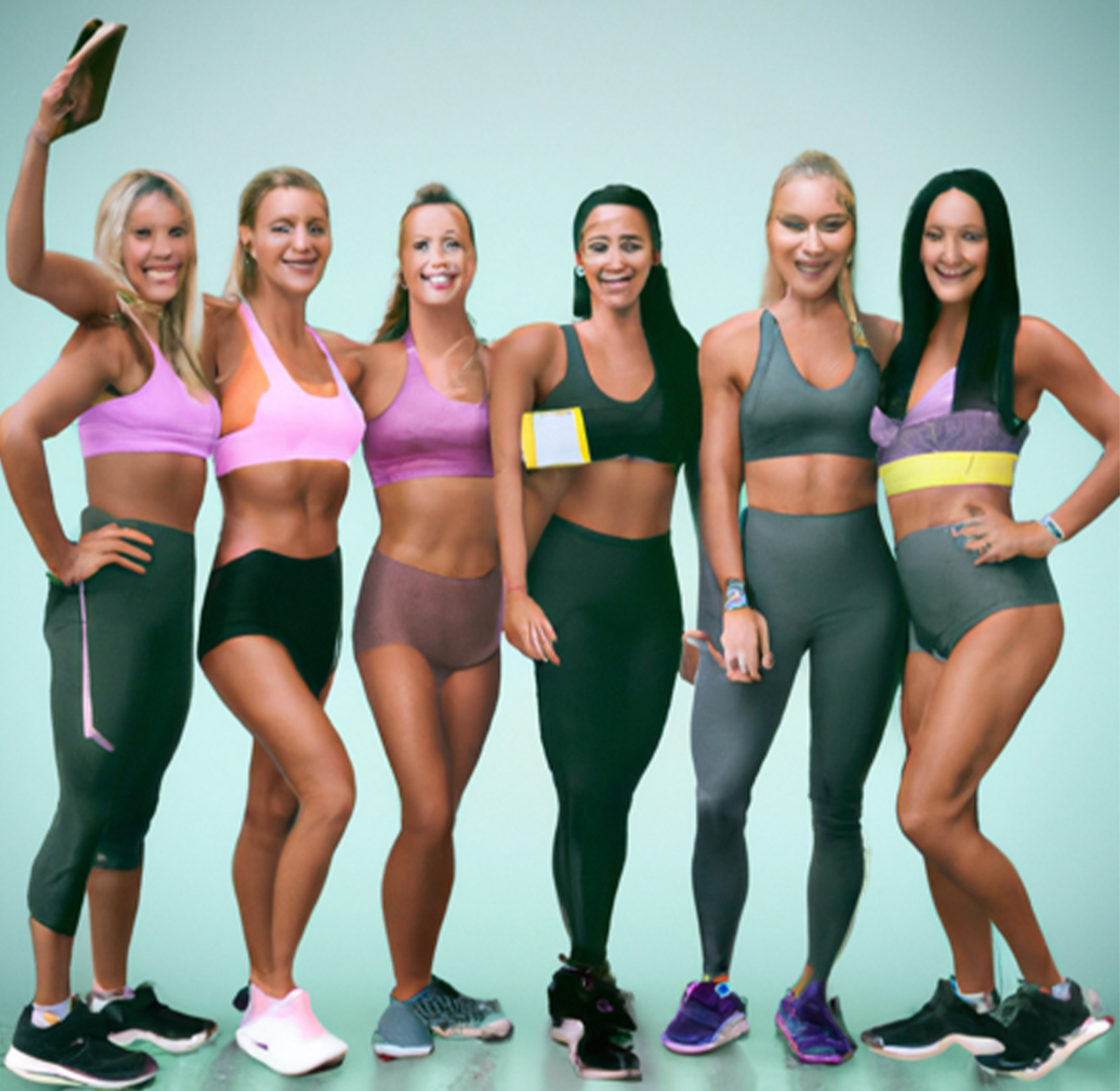
Influence
But what is the real cost to the complainants? At least 14 consumers who sought refunds from Dawn mentioned disordered eating in their grievances. Many followers had inferred from Dawn’s videos and links to her website that she had special training to address eating disorders. Multiple consumers who reported disordered eating on their pre-programme surveys then received cardio exercises and low-calorie macronutrient suggestions that would only be suitable for someone who needed to lose weight, not the opposite. Although Dawn’s is an extraordinary case, if vulnerable individuals have access to toxic misinformation like hers then it’s no wonder that study after study proves social media use is linked to a higher risk for eating disorders.
For every bad egg, there’s a wealth of influencers having a positive impact on women’s lives. From my observations, these fitness stars tend to avoid clickbait titles. At its core (excuse the pun), a healthy lifestyle requires discipline and consistency which doesn’t always fit with our instant-gratification society. Personal Trainer Alice Liveing’s pinned Instagram post from last year explains the important message that “genetics play a huge part in how we look, how we eat and how we go through life… the reason why you don’t look like her isn’t because you don’t eat healthy enough, or train hard enough. It’s because you’re two completely different people with different bodies.” Alice’s posts about correct form, stretching, routines for when you have your period and the benefits of mobility. Her message is echoed across many personal trainer platforms, including Shelley Darlington who is passionate about education over influencing. As Glorious community member and founder of the Grrrl movement Kortney Olsen commented, “we aim to help women be freed from the prison of body image so we can put our focus on real problems.”
Hannah Burke, Owner and Sports Therapist at ASPIRE Sports Therapy, is concerned about the quick-fix pain management content that she often sees from PTs or physical trainers on social media, which often displays completely incorrect advice. “Many fitness professionals come into this space from an experience and recovery of their own, they want to share what helped them in their situation, and that’s a lovely idea. However, without the necessary qualifications, some of those people won’t acquire enough information or training to advise anybody outside of their small window of understanding,” said Hannah.
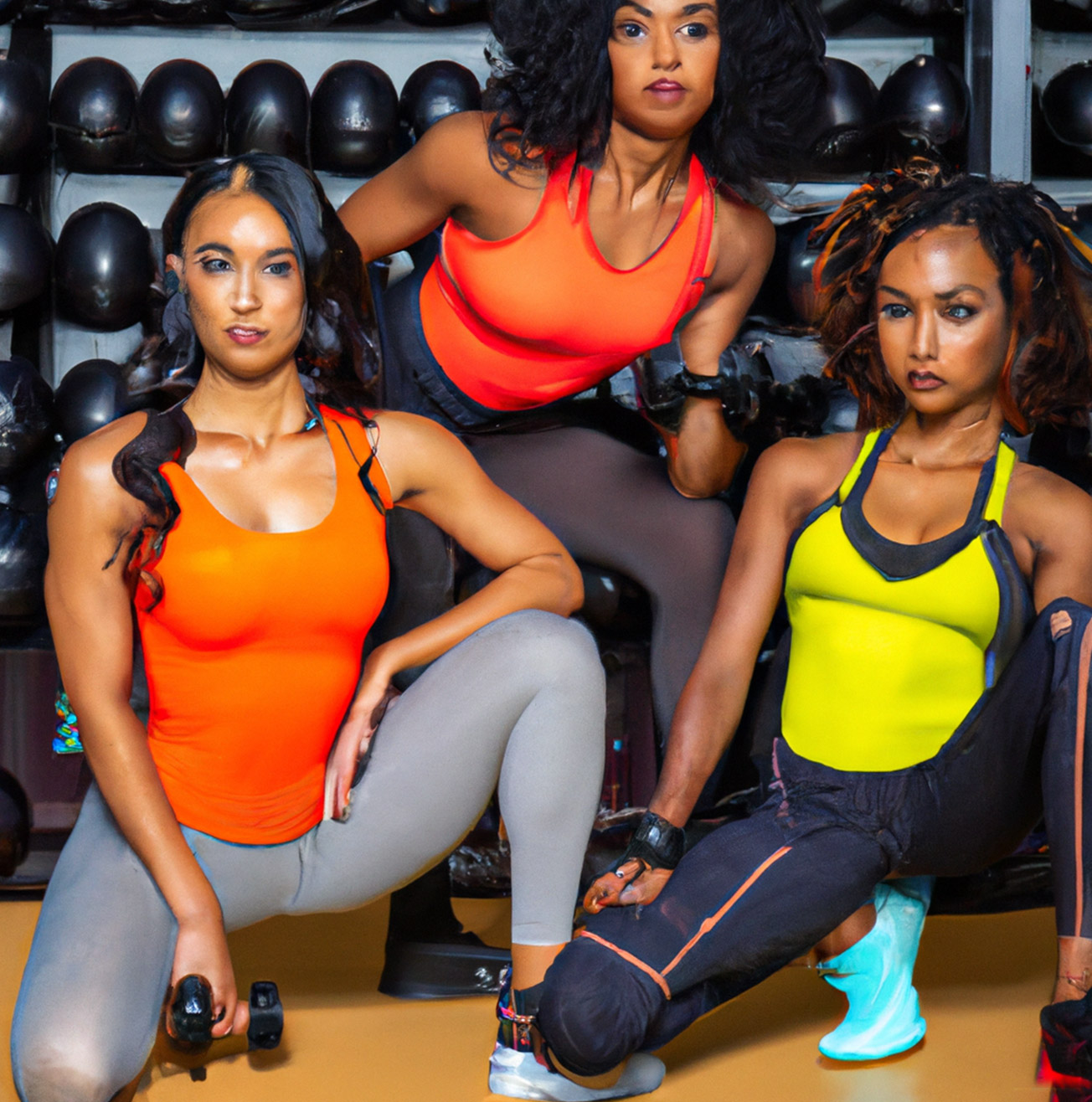
So when you’re considering an online personal trainer, it seems beneficial to research their qualifications and experience as well as their accessibility, in case you need support. Be cautious of relying on before-and-after photos as evidence of success and avoid nutrition plans unless the trainer is qualified in dietetics. It’s always worth considering the benefits of in-person coaching over online platforms for tailored tips and guidance, free from the potential anxiety induced by social media body-image pressures. Many fitness influencers offer face-to-face sessions too.
Is Fitness Entering The Age Of De-Influencing?
Even if you don’t purchase a packaged plan, accounts with a large following combined with sponsored posts can financially benefit from your engagement. Put simply, more likes or use of their discount code means more money in the influencer’s pocket. So in the crowded fitness industry, where does authenticity fit against consumerism?
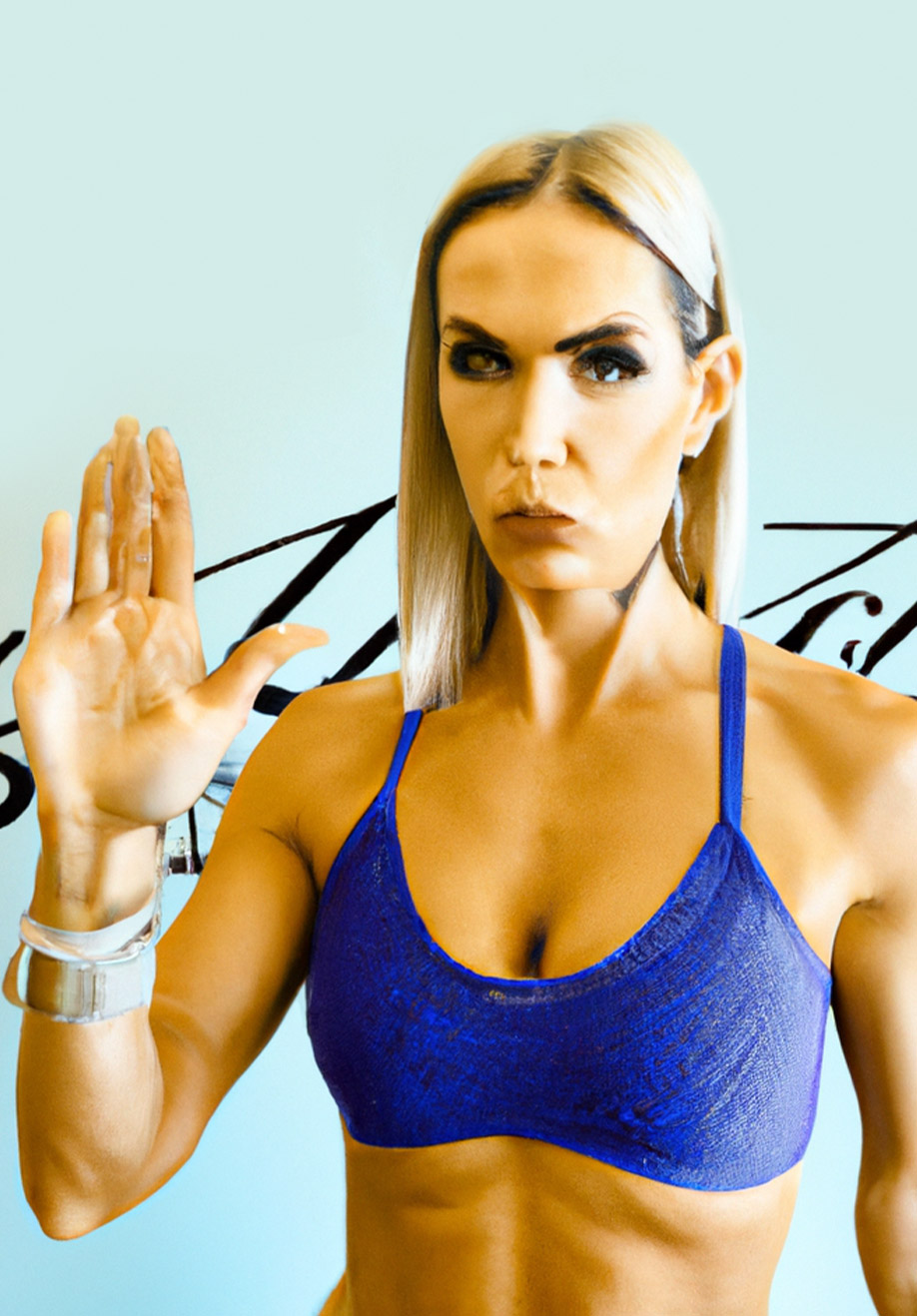
Growing frustration at this model has led to a trend of ‘de-influencing’, putting pressure on social media stars to flip the coin and sway audiences away from making a purchase or following a routine that they just don’t need. The #deinfluencing hashtag is reported to have accrued 21.4m views on TikTok in the last week of January. Could this be the end of traditional influencer marketing as we know it? Probably not, but it’s certainly a shift. Consumers are speaking up. We don’t want blatant product placement and are objecting to influencers who promote items or lifestyles that they are unlikely to follow behind the scenes. But this leaves a gap. I’d advocate for holistic education and inclusion.
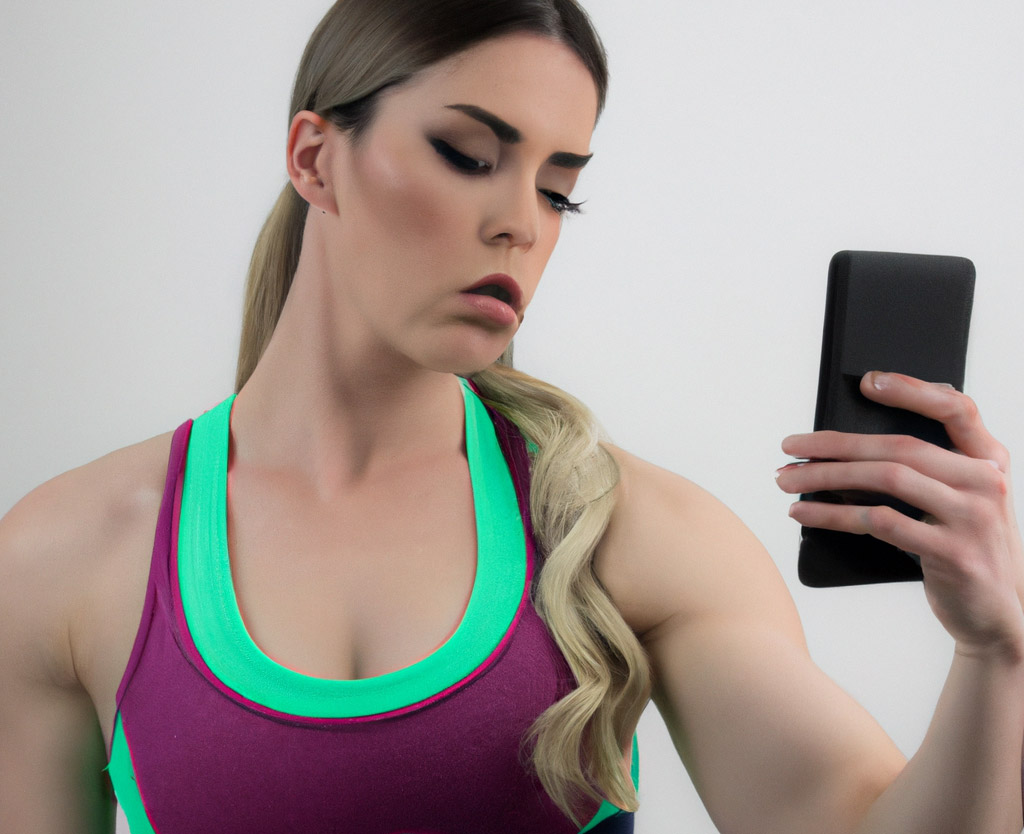
Mental health is an important part of conversations surrounding online safety, and the fitness industry is no exception. Worryingly, over half of under 35s said that if they can’t attain a body like a celeb or an influencer it affects their mental health. Recently, people are turning away from traditional exercise models and looking towards approaches that consider mental wellbeing alongside physical health. By focusing on the body, mind and spirit, we can create a realistic long-term plan for improving overall wellbeing which complements our unique needs and lifestyle. This allows for an intentional approach towards building strength and resilience whilst reducing potentially damaging comparisons or body image issues. By embracing de-influencing within the fitness industry, we can reach our goals while also building healthy habits inside and out.
Until You Can Listen To Your Body, How Can You Optimise It?
I must reiterate that this is the minority. It is only a toxic few influencers who provide poor guidance information about exercise or foster unrealistic expectations of physical appearance within a short timeframe. But ultimately these messages can be dangerous, veering into the realms of “thinspo”. When personalities link themselves to financial opportunities, this can taint their advice. In extreme circumstances, it can encourage the guidance to be done out of a desire to increase followers and revenue rather than share accurate information.
As consumers, I think we should be engaging with body-neutral movements that focus on the health benefits of exercise instead of idolising a visual mould. Everybody is different. Until you can listen to your body, how can you optimise it? Perhaps we should refocus exercising around our pleasure, pace and intensity. Surely that’s more likely to ignite consistency. As a society, we should push for more transparency, regulation and accountability in social media to foster trust.
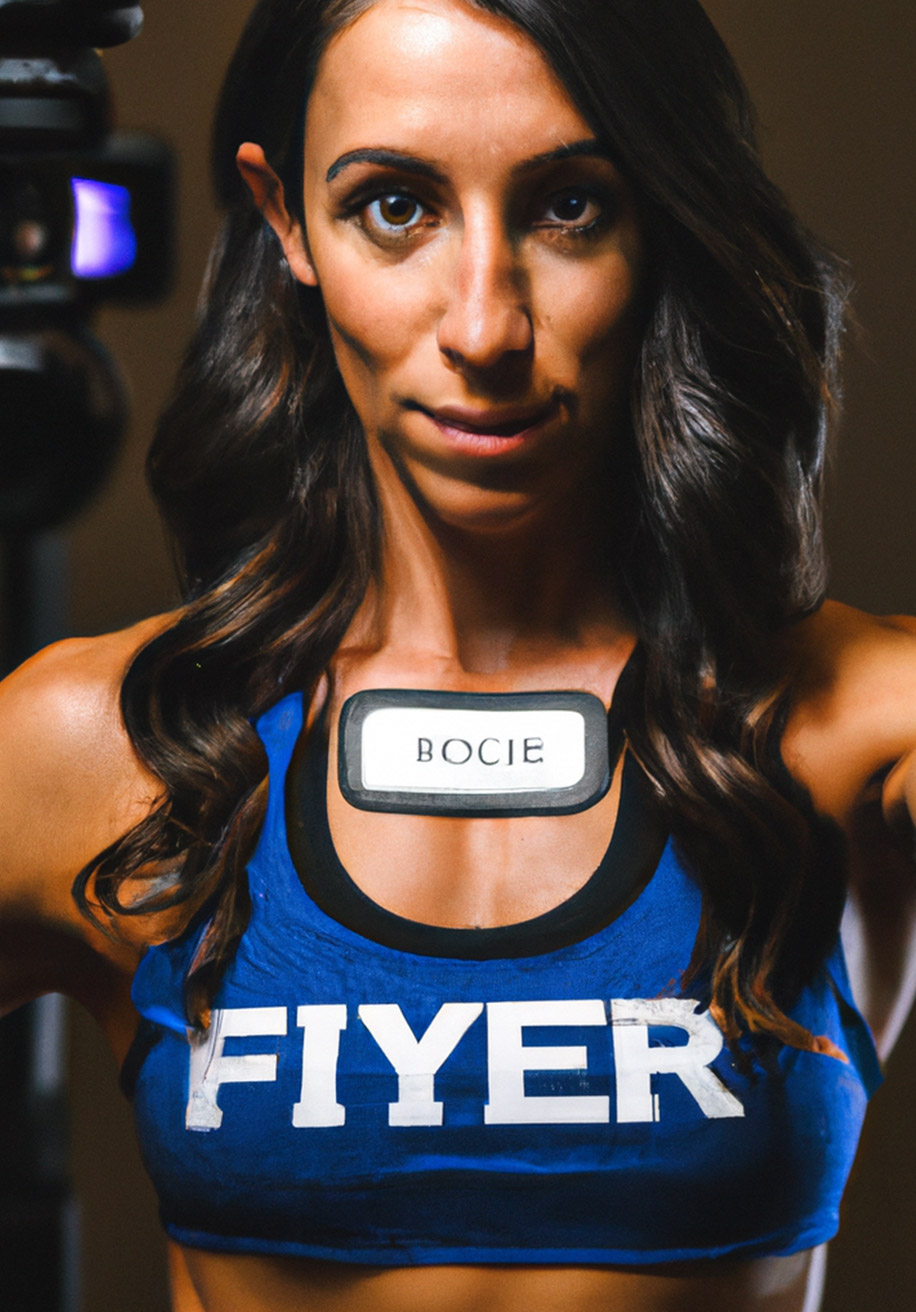
Look For Those Who Exercise Out Of Self-Love, Not To Earn From It
For the vast majority of women, joining an online fitness community can be just the boost they need. It’s a great way to find a supportive home for shared exercise experiences, making it easier to stay motivated. The accountability of doing workouts with like-minded people can be social, benefiting your wellbeing. We all just need to be smart consumers. With so many resources for health and wellness at our fingertips, it’s imperative to find something uplifting without causing damage. Aurélien Daudi, a researcher in sports science at Malmö University recently commented that ‘Fitspiration captures the essence of the problematic side of social media’. Try to sift out who is offering skilled advice and who is pushing dangerous or untested regimes. Do your research, set sustainable goals and boundaries. Respect your mind and body, know when to take a break. Look for those who encourage others to exercise out of self-love, and not in order to earn from it. With the right precautions, we can all enjoy the benefits of online fitness influencers with peace of mind.
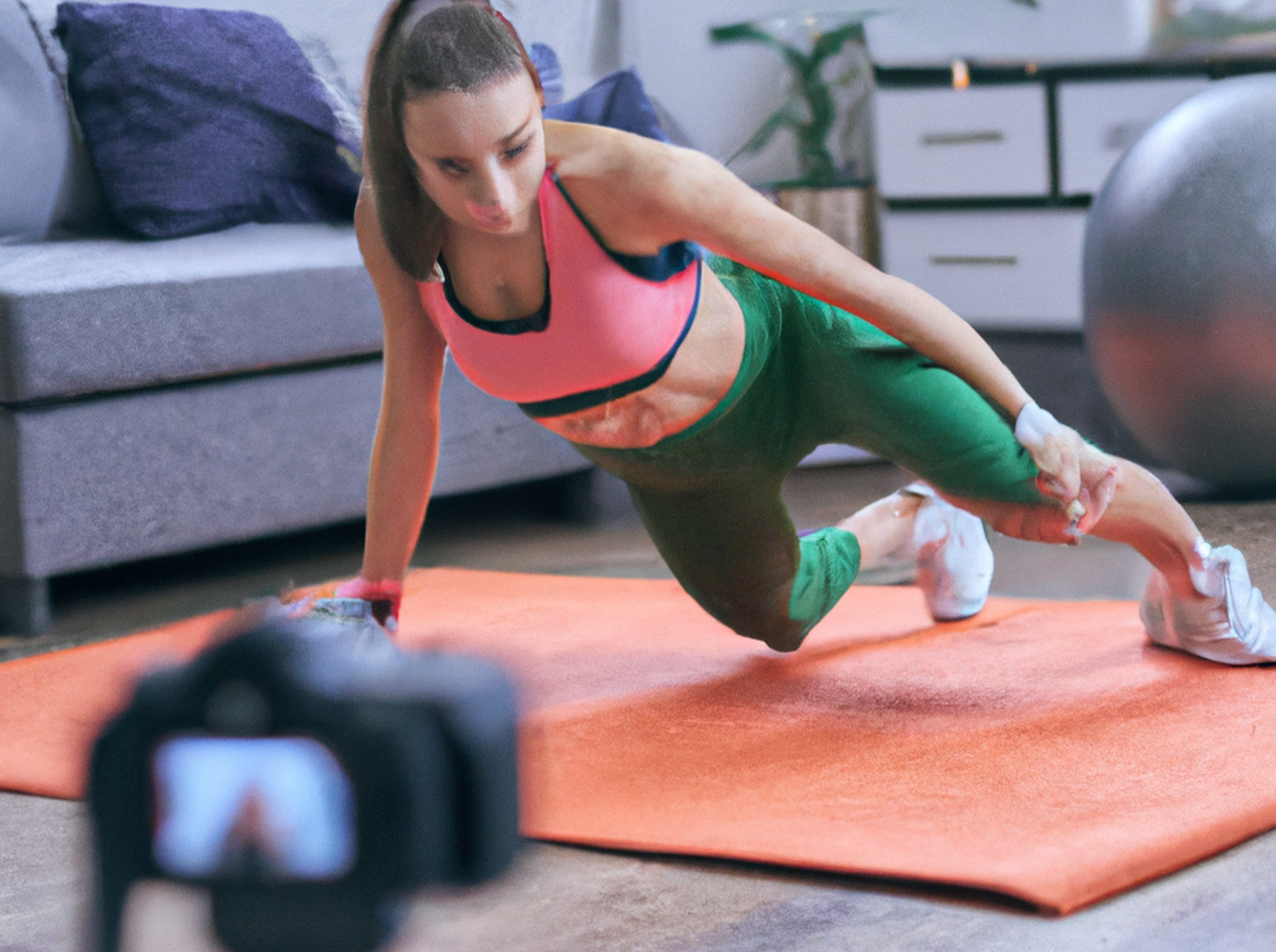
Imagery generated by OpenAI via DALL.E 2 Editorial Design by this is root
